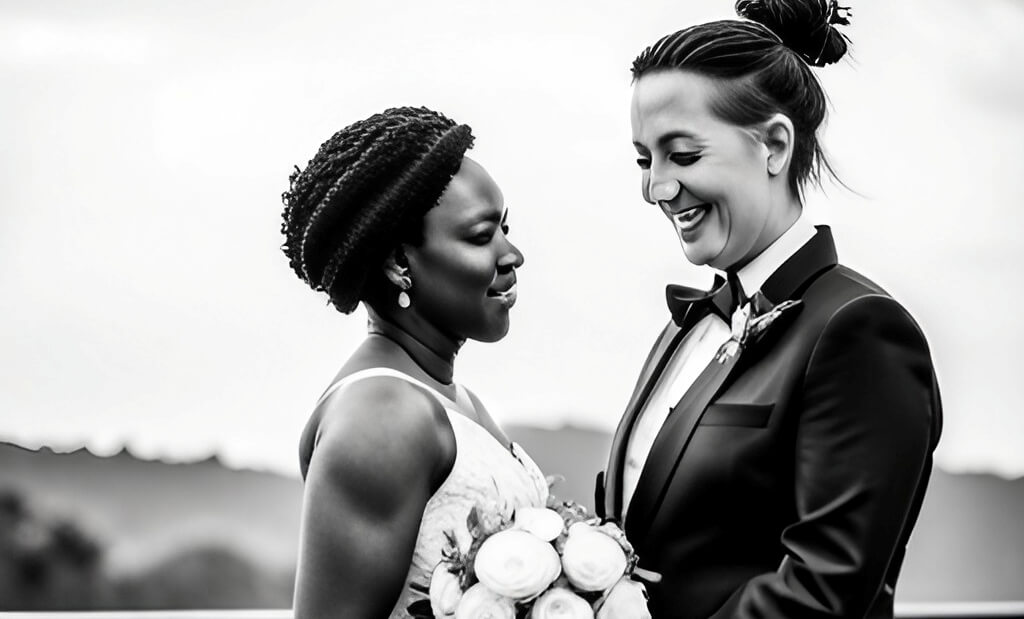Celebrating Love Inclusively
Planning a wedding is a beautiful yet challenging process, and for same-sex couples, it’s a unique adventure that requires special attention to cultural nuances. With the increasing acceptance of same-sex marriages worldwide, the need for inclusive wedding planning has never been more significant. This post explores how to create culturally respectful and joyous celebrations for LGBTQ+ couples.
A Warm Welcome to Cultural Diversity in Weddings
The recognition of same-sex marriages marks a progressive shift toward equality. However, every couple brings their cultural heritage to their union, making the consideration of cultural aspects essential in wedding planning. This blog provides insights for the LGBTQ+ community and wedding planners on how to honor cultural diversity while celebrating love.
The Significance of Cultural Considerations
Culture shapes our identities and experiences, and weddings are no exception. For same-sex couples, acknowledging and respecting cultural backgrounds can enhance their celebrations.
Respecting Traditions
Understanding cultural traditions can help create meaningful and memorable ceremonies. Respect for these practices fosters inclusivity and ensures that all guests feel honored and valued.
Enhancing Emotional Connections
When couples incorporate their cultural heritage into their wedding, it strengthens their connection to their roots and each other. It also allows families and communities to feel more engaged and supportive.
Bridging Gaps
Cultural awareness can bridge gaps between families and communities, fostering acceptance and unity. Recognizing and celebrating cultural diversity is a powerful way to bring people together.
Cultural Traditions and Same-Sex Weddings
Weddings are rich with traditions, and many can be adapted to honor same-sex unions. Here’s how various cultural customs can be beautifully integrated into same-sex weddings.
Western Traditions
In Western cultures, ceremonies often include the exchange of vows, rings, and the first dance. These elements can be personalized to reflect the couple’s unique relationship and values.
Eastern Traditions
Eastern weddings, like those in India and China, often include intricate rituals and symbolism. Couples can adapt these traditions, such as the Indian “Saptapadi” or the Chinese tea ceremony, to fit their union.
African Traditions
African weddings are vibrant celebrations filled with music, dance, and ancestral blessings. Incorporating elements like the “jumping the broom” ritual can add depth and joy to the ceremony.
Challenges in Same-Sex Wedding Planning
While planning a same-sex wedding can be exhilarating, it also comes with its own set of challenges. Here are common hurdles and how to overcome them.
Legal and Social Barriers
Although same-sex marriage is legal in many places, there are still regions with legal and social restrictions. Couples may need to research and plan around these obstacles.
Family Dynamics
Not all families are immediately accepting of same-sex marriages. Open communication and inclusive planning can help ease tensions and build understanding.
Finding Inclusive Vendors
It’s crucial to find vendors who are supportive and experienced in serving LGBTQ+ couples. A vendor’s inclusivity can make a significant difference in the wedding experience.
Inclusive Wedding Planning Tips
Creating an inclusive wedding environment ensures that all guests feel welcome and respected. Here are some tips for wedding planners and couples.
Language Matters
Use inclusive language in all communications, from invitations to vows. This sets a respectful tone for the entire event.
Diverse Representation
Incorporate diverse cultural elements that reflect both partners’ backgrounds. This can include music, food, attire, and decor.
Educate and Engage
Educate vendors and participants about the importance of inclusivity. Engaging everyone in the process helps create a unified and supportive environment.
Real-Life Stories
Real-life stories of couples who have successfully navigated cultural considerations in their weddings can be incredibly inspiring. Here are a few examples.
Emma and Priya
Emma and Priya blended their Western and Indian heritages by combining a traditional white wedding with a vibrant Sangeet night. Their ceremony was a testament to love and cultural harmony.
Alex and Javier
Alex and Javier celebrated their Spanish and Mexican roots by incorporating flamenco music and a traditional Mexican lasso ceremony. Their wedding was a colorful fusion of traditions.
Sam and Jordan
Sam and Jordan, an African American couple, included elements from their Yoruba and Ghanian cultures, such as libation rituals and Kente cloth attire, creating a deeply meaningful celebration.
Conclusion
Incorporating cultural considerations into same-sex wedding planning is not just about honoring traditions; it’s about creating a celebration that reflects the couple’s unique love story. By respecting cultural diversity and fostering inclusivity, we can ensure that every wedding is a joyous and unforgettable experience. If you’re planning your wedding and want to make it truly special, consider consulting with a wedding planner who understands the importance of cultural inclusivity. Celebrate love in all its beautiful forms and create memories that will last a lifetime.
